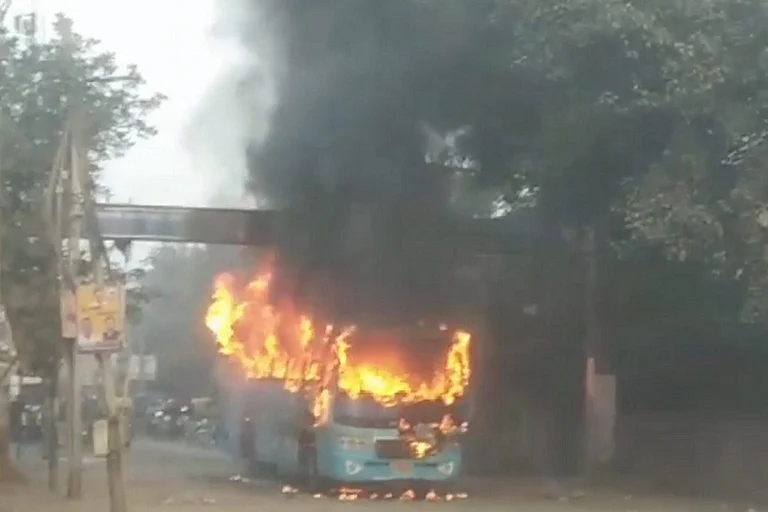If you do not have a feel for the strong underlying pulse of Indian politics, the rapid ups and downs that have taken place in the last few weeks are incomprehensible. Only the other day it seemed that the bjp was finished. Its prime minister seemed completely at sea; its allies were baying for its blood; its economic policy was a shambles; its image was hopelessly tarnished, and the voters were deserting it in droves for the Congress. When the Bajrang Dal created an atmosphere (to say the least) in Orissa that was conducive to the murder of a foreign missionary and his children, the end had seemed nigh. After the November rout of the bjp in three states, Mrs Sonia Gandhi had taken the principled decision not to capitalise on its defeats to bundle it out of power at the Centre.
As a corollary, the Congress had, for the first time, extended a measure of principled support to the government on key issues of economic policy. The anti-Christian violence began to make it look as if even this decision had been the wrong one to take. The bjp allies too began to regret being associated with it. As a result, only 10 days ago, no one could tell for certain whether the Congress would be able to stick to its resolve not to topple the government.
Suddenly, almost miraculously, everything has changed for the better. In the last one week (at the time of writing) the prime minister has publicly endorsed the ideals for which Mahatma Gandhi gave his life, contemptuously dismissed the charge that missionaries were forcibly converting tribals to Christianity, taken the negotiations with the US on the non-proliferation regime a long step forward, stoutly withstood pressures to roll back the increase in administered prices announced last week to contain the deficit, warned the nation in unambiguous terms that he intended to reduce the fiscal deficit this year, and best of all, bound his allies in the government to a promise not to air their grievances in public. In fact, he has asked them to help in repairing the damaged economy inherited from the United Front, in exchange for a promise to control the fanatic fringe of the Sangh parivar and prevent it from damaging the coalition in the eyes of the public.
Is this turnabout real? Will it endure? The answer is, 'probably yes'. The change began some time ago, when the prime minister abruptly took the initiative in pushing ahead with economic reform. Announcing plans to construct 7,000 kilometres of roadways and five international airports to upgrade the infrastructure and kickstart an economic recovery. No one took that initiative very seriously, because the government had been trying to do these things for five years with little apparent success. But in the weeks that followed, the legal and economic framework for implementing them began to be created with commendable speed, in the form of Special Purpose Vehicles that would give the project authorities an independent capacity to borrow abroad. Mr Vajpayee followed this up with a concerted attempt to pass the Patents Bill, to open up the insurance sector and to repeal the Urban Land Ceiling Regulation Act, all of which are necessary to promote domestic and foreign investment and to keep India in the World Trade Organisation.
Then came the attacks on the Christians, and the bjp became a pariah once more. Yet even this unfortunate - and ultimately tragic - contretemps has turned out to have a silver lining. For it has abruptly widened the cleavage within the bjp, and between the bjp and the fanatic elements of the Sangh parivar. Hundreds of bjp members and no doubt many in the rss as well, have been forced to examine their consciences and ask themselves whether this is what Hindutva means for them.And a very large number have decided that it is not. Mr Madan Lal Khurana was the most outspoken and paid the expected price. Mohan Guruswamy, till last week special advisor to the finance minister, is the second casualty. But in going public with their reservations, they strengthened the prime minister's hand and enabled him to mount a less public but far more devastating assault on the fanatic fringe in the Sangh parivar. Refusing to prejudge the guilt of the Bajrang Dal, and uneasy about the explosive potential of the conversions issue, he has nevertheless affirmed his faith in Gandhi's vision of India through actions and not just words. The meeting of the coordination council revealed his mastery of strategy, for he used the allies to bind down the fanatic fringe on the issue of secularism and the promise to control the fanatics to bind down the allies on the issue of repairing the economy and not airing their grievances in public.
Mr Vajpayee's masterstroke has been his decision to go on the inaugural bus to Lahore to meet prime minister Nawaz Sharif. If there was ever a gesture that would touch ordinary people on both sides of the unhappy frontier, it is this, for the bus is their mode of travel. There could have been no better way of reminding the ordinary people of both India and Pakistan that they will be the main beneficiaries from a settlement of outstanding disputes. The cricket match that is being played in a rare good spirit at the very moment is a reminder of how much the two countries share with each other. But the downside of this sibling relationship is that when feelings are hurt, when anger takes over, it is utterly disproportionate to the cause. It has been obvious for some time that if there is ever to be a settlement of disputes it will have to take place first on an emotional plane. Mr Vajpayee's gesture, and Mr Nawaz Sharif's decision to reciprocate it, may provide just the kind of emotional catalyst India and Pakistan need.























